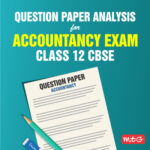
Class 10 is a crucial year for students in India, as it marks the first board exams and sets the foundation for future academic decisions. With the pressure of board exams and expectations from parents, teachers, and even yourself, one of the most common questions students have is: “How many hours should I study?”
Important – CBSE Class 10 Sample Papers 2024-2025 – Free PDF Download
Quality Over Quantity
Before jumping into the number of hours, it’s important to understand that quality matters more than quantity. You can study for 10 Hours a day, but if your mind isn’t focused or your approach isn’t effective, those hours will not be of any value. Instead, focus on productive, well-planned study sessions here you can absorb and retain information efficiently.
Also Check – How to Score 100 Marks in Math Class 10 for 2025 Board Exams
Ideal Study Time Class 10: Breaking It Down
While there’s no one-size-fits-all answer, a general guideline can be followed based on how close you are to the board exams:
- Quarter 1 (April – June): Early in the academic year, it’s best to aim for around 3-4 hours of focused study per day outside of school hours. Use this time to build a strong foundation of core concepts.
What to Do?
- Revise what’s taught in school daily to reinforce understanding.
- Focus on learning concepts rather than memorizing.
- Set small, achievable goals for each study session to cover portions of the syllabus.
- Quarter 2 (July – September): Spend the next three months strengthening concepts as well as identifying weak areas. Spend at least 4-6 hours studying daily. Remember that your goal in these months is to complete as much syllabus as you can but also have a strong foundation of the concepts.
What to do?
- Increase your focus on weak/difficult subjects.
- Start practicing questions for the chapters you have already completed. (Do chapter-wise practice)
- Put extra focus on numerical problems of science & Mathematics.
- Quarter 3 (October – December): This is the time to focus on extensive practice and revision. As the board exams are close and the syllabus must be finished by now, so, increase your self-study time to 6-7 hours.
What to do?
- Begin structured revision of all subjects and solve previous years’ question papers.
- Revise important topics thoroughly and focus on frequently asked questions in board exams.
- Practice subject-wise sample papers to gauge your preparation for each subject.
- Quarter 4 (January – February): This is the final time before your board exams, so, spend at least 8-10 hours practising each subject and improving weaknesses.
What to do?
- Prioritize practice and revision over new learning.
- Revise your notes, practice important questions and solve full-length sample papers.
- Focus on time management by taking mock tests in actual exam-like conditions with a stopwatch.
The gradual increase in study hours ensures that you are prepared well in advance without feeling overwhelmed at the last minute.
Did you know? – How Percentage is Calculated in CBSE Class 10 CGPA
Tips for Effective Study
- Set Clear Attainable Goals: Break your syllabus into small targets with focused study sessions.
- Use the Pomodoro Techniques: Study for 25-30 minutes, then take a 5–10-minute break After 4 sessions, take a longer break. This keeps your mind fresh and focused.
- Avoid Cramming: Instead of studying all subjects every day, focus on 2-3 subjects in detail and rotate throughout the week.
Chapterwise practice – CBSE Class 10 Science MCQ With Answers
Conclusion
For class 10, aim for 4-5 hours of productive study per day at the beginning of the year, gradually increasing to 8-10 hours closer to exams, which is a good general guideline. However, the key is not to fixate on the number of hours but on making those hours but on making those hours effective and focused. With a structured study plan, regular revisions, and a healthy balance of rest, you’ll be well-prepared to ace your board exams without overwhelming yourself.





























